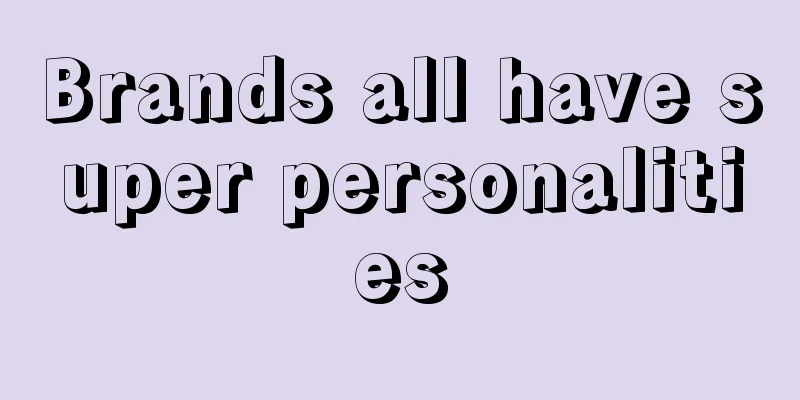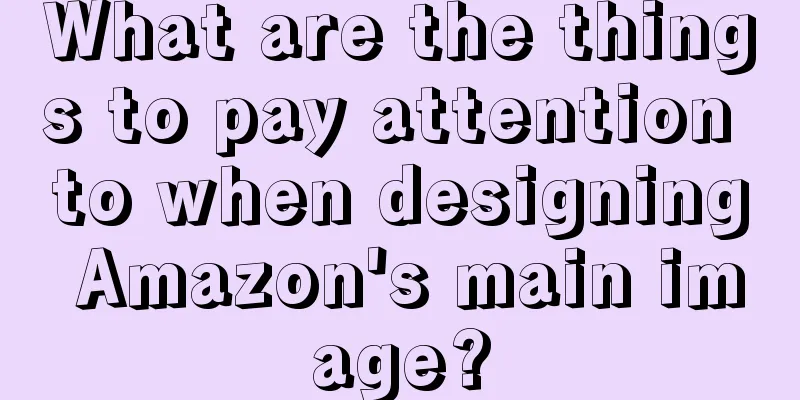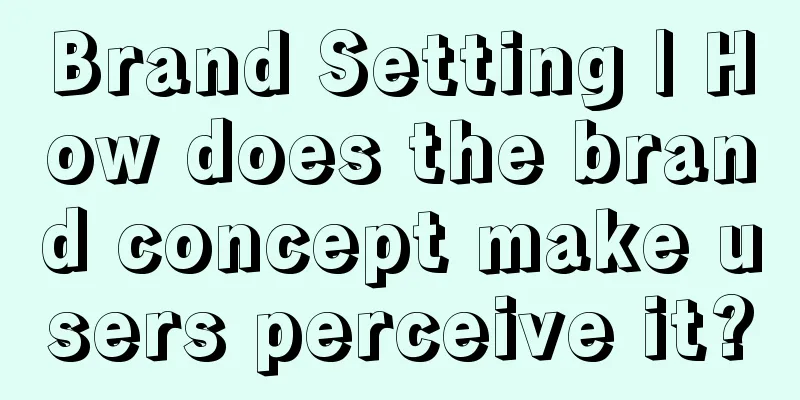Brands all have super personalities

Brands are like people. Only people with personality can be truly appreciated and liked. For example, the deceased Kobe, Jackson, Jobs, Maradona, Pele, Monroe, and Princess Diana all have their own unique personalities. Kobe was embroiled in sexual assault scandals; Jackson was disgraced by the child molestation case; Jobs's bad temper scared people who worked with him. But these "negative" news did not affect their path to becoming a god. This shows the importance of "personality". What personalities do brands have? Brand experts have worked hard in this regard and have summarized 18 basic personalities of brands in 5 categories. 01The first type represents a sincere character. Practical, honest, healthy, and joyful characters all represent pragmatism. Nongfu Spring’s slogan is “We don’t produce water, we are just nature’s porters.” This is a typical pragmatic brand character. Many people think that Zhong Shanshan, the founder of Nongfu Spring, is good at public relations and hype, but many people overlook a very important attribute of Nongfu Spring, which is that Nongfu Spring basically does what it says, for example, Nongfu Spring says “We don’t produce distilled water, we only make natural water” and so on. The brand character that this brand conveys to users is pragmatic, and this pragmatic character, coupled with inexpensive products and unpretentious packaging, has helped Nongfu Spring enter thousands of households, every conference venue, and even hotel rooms. The second category represents a stimulating personality, bold, lively, imaginative and modern; Xiaomi's creation for fever, Apple's re-imagination and Durex's constant stepping on the line to gain popularity are all examples of stimulating personality. The third category is the character that symbolizes ability, which means being reliable, smart, successful, and responsible. Microsoft and Honda belong to this category. The fourth category represents a refined character, noble, charming, exquisite, and peaceful; Chanel, MUJI, and Starbucks all belong to this category. The fifth category represents a tough character, outdoor, strong. For example, Land Rover and Marlboro belong to this category. Marlboro has a white horse, a cowboy, and then shout out, this is the world of Marlboro. That kind of tough character and image emerges spontaneously. 02After reading the 18 personalities in 5 categories, do you feel a little dizzy? With so many brand personalities, how should you choose your own brand? From what perspectives should you think about what kind of personality your brand should have? What kind of image should it have? The brand personality and image positioning are mainly determined by three factors. The first factor is: What is the personality of the consumer group we are facing? The second factor is: What role do our products and services play in consumers’ life scenarios? The third factor is, what kind of image do competitors give to the same consumer groups? The first factor is: What is the personality of the consumer group we are facing?Why do many brands use personality shaping? Because consumers often seek consistency between the brand's "character" and their own personality through using products. If I want to go "wild" and am a person who desires power and freedom, I might buy a Land Rover. If I think I am a noble and stable person, I might buy a Mercedes-Benz. If I think I am a person who pursues youth and fashion, I might buy a BMW. A product is a label. It often expresses "who I am" to others, and also constantly tells me "who I am". Why is Coke now called "dead fat otaku water"? And how did Yuanqi Forest become a drink for healthy and positive people? This is a very interesting change in the process of brand character building. Psychologists once conducted an experiment: they distributed some brand-name bags to a group of women, told them that they were high-quality imitations, and asked them to walk around the mall with them. Then they were asked to take an IQ test, and the results showed that the proportion of cheating increased significantly. Holding "high-quality imitation bags" gave these people a subconscious psychological impression, making them feel more like a hypocritical person, so in the next exam, they automatically lowered their moral requirements and increased cheating. "Anyway, I am a hypocritical person." These influences all occur at the subconscious level, and people cannot directly perceive them - the products we use every day and the services we choose are actually subtly influencing our behavior or personality pursuits. Therefore, as consumers, if we can actively choose, we are more inclined to choose products that are consistent with our own "personality image". When companies do brand planning, the first thing they consider is whether the "personalized" image of the company's brand and products, which is highlighted through personality and image, is consistent with the personality of the target consumer group. There are two main types of human personality: ideal personality (who we want to be) and real personality (who we are now). The shaping of product personality is either the same as the ideal personality of the target consumer, or the same as their real personality. If it is a product for public use (such as clothes), the brand is often shaped into the ideal personality of the consumer (at this time, the consumer uses the product to show the image to the outside world); if it is a product for personal use (such as bed sheets), the brand is often shaped into the real personality of the consumer (at this time, the consumer mainly uses the product to show the image to himself). Take mobile phones as an example. Mobile phones are products that need to be used publicly and display personal image, so mobile phone manufacturers often create "ideal personality". In the early days, Xiaomi mobile phones focused on "cost-effectiveness", and the real personality of consumers should be: a cost-conscious and pragmatic person. If the brand personality is directly shaped in this way, it may attract negative symbols - Xiaomi, the mobile phone used by losers. Therefore, the personality created by Xiaomi is the "ideal personality" of this part of consumers - enthusiasts. And they say "born for enthusiasts" - I use Xiaomi mobile phones not because I don't have money to buy more expensive mobile phones, but because I am an enthusiast. For example, Apple has previously created the image of "Think different", but the actual personality of its consumers may not be like this (only a few people are different). What Apple created at that time was actually the ideal personality of its main consumers. For many products that are not used publicly, they tend to use the actual personality of the main consumers. For example, many shampoos advocate "natural and healthy", which is the personality that their users will show when considering shampoo. The second factor is: What role do our products and services play in consumers’ life scenarios?All brand personalities will eventually be reflected in the "brand story", so shaping brand personality needs to be based on your brand story. What is a brand story? There are many different opinions, but I think the so-called brand story is: what role does your product play in what storyline. For example, the typical brand story of Red Star Erguotou is like this: use bullets to knock down the enemy, and use Red Star Erguotou to knock down the brother. In this story, Red Star Erguotou plays the role of "coordinator of the relationship" and is the focus of the interaction between the two brothers. Naturally, in this story, the brand needs to have a "tough" personality such as "strong", "hearty" and "powerful". When telling brand stories, different product categories play different roles and functions in life, so the direction of the story is different, and the personality embodied in the end is also different. For example, furniture, daily necessities, and real estate, if for young people, they may be able to tell brand stories from the perspective of having a good life or a good love through these things. For alcohol, we can see brand stories that talk about men's feelings, and there are also brand stories that link alcohol with good things. For example, some products play the role of "relationship substitute" in brand stories, replacing a certain relationship that already exists and becoming your companion. In many advertisements for Kindle e-books, Kindle plays the role of a "relationship substitute". There should be at least two protagonists in the story and they should have a relationship. Kindle replaces one of the protagonists - it is not you playing with a friend, but Kindle accompanies you to read and think (unfortunately, Kindle has withdrawn from the Chinese market). For example, in many car brand stories, a person is driving a car in the suburbs, and the role of the car at this time is a "relationship substitute" - it is the car that accompanies you to gallop, not the other protagonist. The third factor is, what kind of image do competitors give to the same consumer groups?When choosing and shaping a brand personality, you need to consider your consumers - what is their ideal self? What is their real self? You need to consider the role your product plays in the story - in my brand story, what role does my product play and what personality should it correspond to? In addition, like all marketing methods, you need to consider the actions of your competitors. "If most of your competitors are shaping one personality, it is recommended to change it." Creating a brand that goes against competitors and telling a story that goes against competitors often brings you unexpected gains. When we made White Elephant Big Bone Noodles, we adopted a strategy that went against competitors. The image and story created by Master Kong is that it is delicious, and the image and story created by Uni-President is that it can fill you up no matter what the scene is. White Elephant Big Bone Noodles chose to go against the trend and focused on how to select good bones and boil out collagen to make the soup more delicious and more nutritious. 03For example, tofu gives people the impression of being "feminine and weak", but a very popular tofu shop in Japan does the opposite. It is called "Otomae Tofu Shop", creating an image of masculinity and strength, which contrasts with the public's inherent impression of the tofu industry, thus successfully creating a deep impression. Almost all sports brands embody a "stimulating personality" (advocating personal struggle, challenging oneself, etc.), such as Adidas' "Nothing is impossible", NIKE's "Just do it", and even domestic brands' "Keep moving". However, the American sports brand UA has created a "capable personality", embodying an image of "intelligent, technical, and teamwork", and even the advertisements are dominated by multiple people. When choosing and shaping a brand personality, you need to ask yourself: Among my optional personalities, which ones are crowded with competitors? Which ones can I selectively break through? 04People have personality, brands have character, and what supports brand character is the brand's personality and image. When shaping brand character, companies cannot just make decisions based on their own ideas. They need to comprehensively consider the personality of your consumers (ideal self vs. real self), the role of your product (brand story), and the choices of your competitors. Only in this way can you achieve twice the result with half the effort in brand building. Author: Liu Yichun Source: WeChat public account "Liu Yichun's Brand Business Innovation (ID: shangyeyiguohui)" |
>>: Behind the "contract-breaking wave" of homestays, Meituan cannot become "Airbnb"
Recommend
shein will accelerate adoption of more sustainable packaging solutions
SHEIN, the global online fashion and lifestyle ret...
Will AI replace new media professionals? We wrote an article using ChatGPT
This article is divided into two parts. The first ...
What courier does Amazon use for direct mail? How to operate Amazon?
Amazon is the largest cross-border e-commerce plat...
Why do people need village night
Recently, topics related to the Spring Festival Ga...
8,000 words of useful information | Learn "Brand Launch Conference" from Steve Jobs and Lei Jun: 6 rules and 18 techniques!
The 2024 new energy vehicle launch is in full swin...
How can Chinese sellers join Allegro? What is Allegro?
As the largest online shopping platform in Poland,...
Milk tea collaboration, no reproductive isolation.
There are many new ways to collaborate with milk t...
WeChat gifts, on the eve of an explosion
As the Spring Festival approaches, WeChat quietly ...
Brand No. 1: Spend money to grow, how?
Exploring the complex relationship between adverti...
WeChat Ask a Question has a new feature: you can make money by writing answers!
WeChat has launched the "Ask a Question"...
How to fill in the delivery address on eBay? Any suggestions?
eBay is a relatively well-developed cross-border e...
Private Domain Case | With more than 62 million members and online sales growth of 63.95%, how does Dasanlin operate its private domain traffic pool?
Every brand wants to achieve marketing promotion t...
Uncovering the secrets of hundreds of new bloggers! An analysis of the three major trends in Xiaohongshu content creation
The rise of hundreds of new bloggers has pushed Xi...
How to write Amazon POA? What is Amazon Action Plan?
There are many things we need to do after opening ...
What are the methods for Amazon to increase product traffic and conversion? Method introduction
The ultimate goal of e-commerce traffic and promot...









